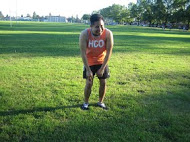Food Allergies
- A food allergy occurs when the body’s immune system responds abnormally to certain foods.
- Allergic reactions are generally minor, but they can be quite severe.
- In young kids, some food allergies include eggs and milk.
- In adults, vegetables and fruit are the most common for food allergies. Allergies to nuts, including peanuts, are pretty common in both adults and school kids.
Symptoms Of Food Allergies

- Irritated feeling in the mouth, ears and throat.
- An inflamed rash (referred to as hives).
- Inflammation of the lips, eyes, face and tongue.
- Nausea.
Anaphylaxis – Severe Reaction
- In the most severe instances, an individual has a serious allergic reaction (anaphylaxis), which can be deadly.
- If you think somebody is displaying signs of anaphylaxis – such as breathing problems and dizziness – phone for an ambulance and inform the dispatcher you think the individual has “anaphylactic shock“.
Causes Of Food Allergies
- Food allergies occur when your body’s immune system incorrectly treats proteins contained in food as a danger.
- Therefore, the body releases chemicals. It is these chemicals that result in an allergic reaction.
- Any kind of food can lead to an allergic reaction, but there are particular foods that are accountable for most food allergies.
In kids, the foods that are responsible for the most reactions are:
- Fish;
- Nuts;
- Shellfish;
- Eggs;
- Milk; and
- Peanuts.
Most kids that experience a food allergy will also likely have eczema during the early stages. The severity of an allergic response will also depend on how early your child started developing symptoms of eczema.
The foods that cause the most allergic reactions in adults are:
- Fish.
- Nuts – such as walnuts, pistachios, almonds and Brazilian nuts.
- Shellfish – such as prawns, lobster and crab.
It’s still unclear why individuals get allergies to certain foods though they often have other allergic disorders, such as eczema, hay fever and asthma.
Treatment For Food Allergies
There is no specific treatment to cure allergic reactions to food. The most useful way of avoiding an allergic response is to detect the food that leads to the allergies and then stay away from it.
Related Video On Food Allergies
https://www.youtube.com/watch?v=i4UIwwiNC48
